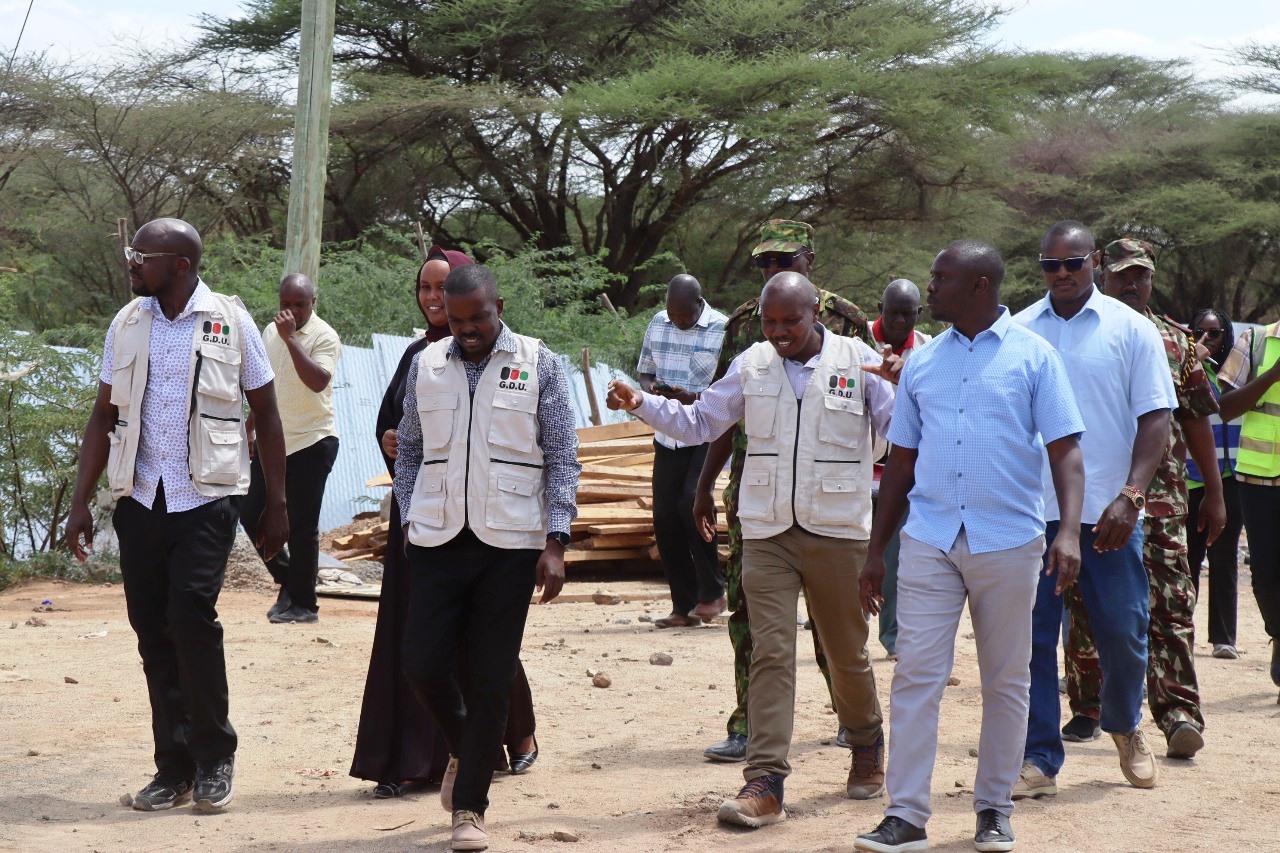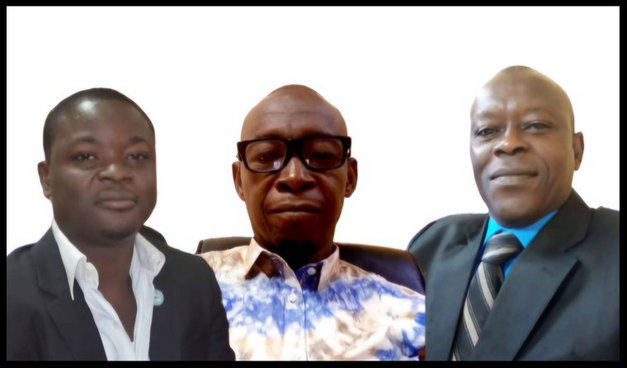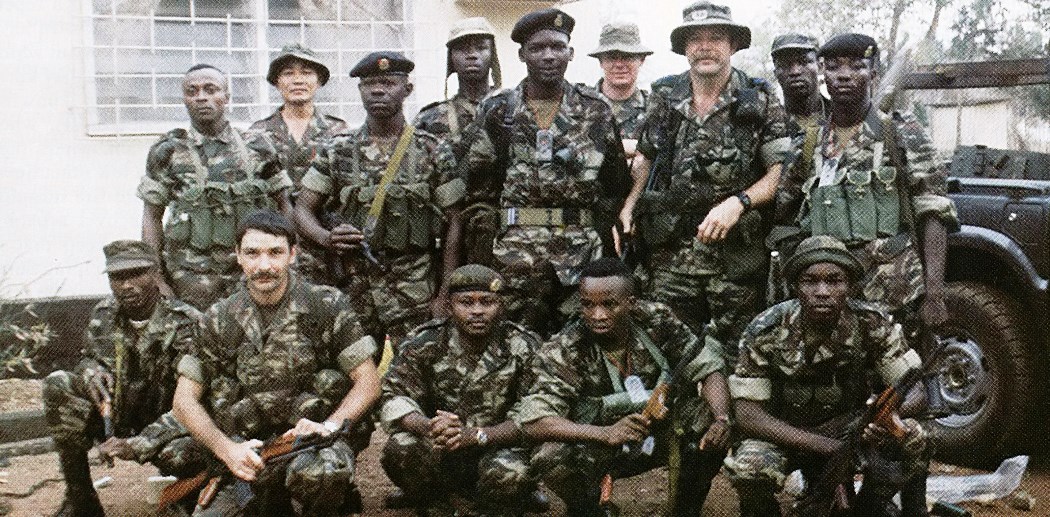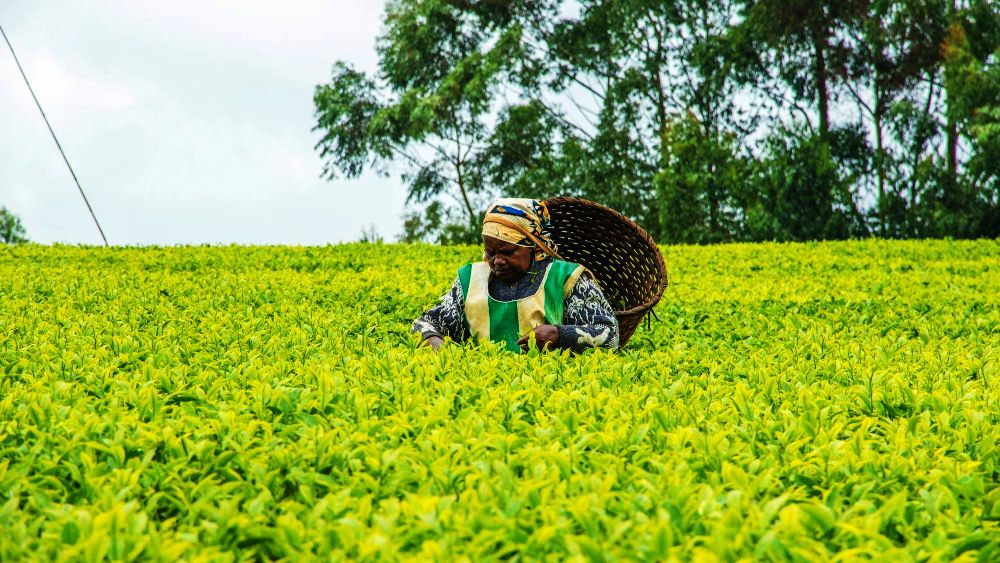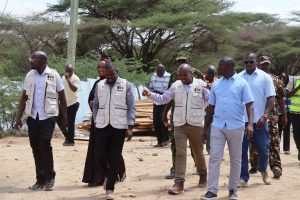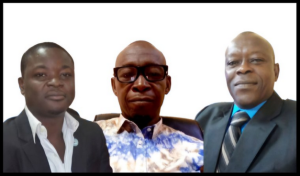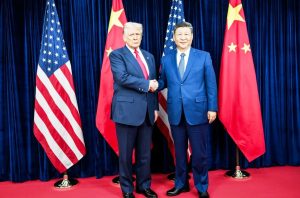UN Secretary-General António Guterres (centre) tours a vaccine production facility at the Institut Pasteur in Dakar in May 2022, with the President of Senegal, Macky Sall (left centre). PHOTO/UN/Eskinder Debebe/File.
By MORRIS ODHIAMBO
The governance and constitutional crisis in Senegal is getting worse by the day. Senegalese have been protesting the postponement of presidential elections, which were to take place in mid-February.
From all indications, the sole responsibility for the postponement of the elections, and its bloody aftermath, lay squarely in the hands of the president, Macky Sall.
In actual fact, the protests are a continuation of a wave of protests that started on June 1st 2023, when opposition leader, Ousmane Sonko, was convicted on charges of “corrupting young people”.
Sonko had been arraigned on three charges. Apart from corrupting the youth, he was accused of rape and issuing death threats. The courts found there was no evidence to support the two later charges.
Apparently, Sonko was the biggest threat to Macky Sall’s plans to extend his term in power. Sonko’s conviction was seen largely as a way of preventing him from participating in the elections.
The fact that there was no evidence to sustain the other two serious charges reinforces the view that his conviction was part of Sall’s political scheming. Macky Sall’s decision to postpone the elections, therefore, simply added fuel to the fire that had already been lit.
But, to put it into more perspective, the Senegalese crisis goes back many years. And it all revolves around incumbency and the rejection of democracy by the ruling elite.
In 2012, the then president, Abdoulaye Wade, sought to run for a third unconstitutional term of office leading to similar protests, death, destitution and destruction. He attempted to bar one of Senegal and Africa’s most respected singer, Youssou N’dour, from vying.
Wade’s intransigence gave rise to the M23 People’s Movement, but also left some 30-50 Senegalese dead and more than 600 languishing in incarceration. In a way, Macky Sall became the key beneficiary of the political organising against Wade’s unconstitutional intentions. Of course, there has never been any accountability for these crimes!
The situation in Senegal, if viewed from this historical context, reminds me of one of Karl Max’s memorable quotes, that “history repeats itself, first as a tragedy, second as a farce”; or George Santayana’s equally memorable quote “those who cannot remember the past are condemned to repeat it.”
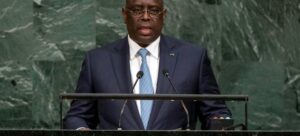
President Macky Sall of Senegal addresses the general debate of the General Assembly’s seventy-first session in September 2017. PHOTO/UN/Cia Pak/File.
But the tragedy is bigger. It encompasses continental governance in Africa as well as the ability and viability of the state to be a strong pillar of integration. I have said many times that those who claim to promote Pan-Africanism have failed to come up with answers to the weak condition of the state. They instead prefer to issue condemnations and slogans in public meetings and on social media spaces!
The African Charter on Democracy, Elections and Governance (ACDEG), the key continental framework that guides governance, calls for states parties to, among others: (i) promote adherence to the universal values and principles of democracy and respect for human rights; (ii) promote and enhance adherence to the principle of the rule of law premised upon the respect for, and the supremacy of, the Constitution and constitutional order.
It is also, to (iii) promote the holding of regular free and fair elections to institutionalize legitimate authority of representative government as well as democratic change of governments; (iv) prohibit, reject and condemn unconstitutional change of government in any Member State as a serious threat to stability, peace, security and development.
The ACDEG is one of the key instruments of African governance. It is part and parcel of the African Governance Architecture (AGA), whose goal is to: “promote and protect human and people’s rights, consolidate democratic institutions and culture and ensure good governance and the rule of law”. It is inspired by the Constitutive Act of the African Union (AU).
There is no doubt that everything that has been happening in Senegal, from the time of president Abdoulaye Wade go against the spirit and requirements of ACDEG and especially the need to engineer democratic and legitimate people’s government. One can argue about the kind of democracy that is good for Africa, but the principle of a “government by and of the people” must be entrenched.
During the December 2023 celebration of the United Nations Universal Declaration on Human Rights (UDHR), I and a few colleagues from civil society took the opportunity to question the commitment of African leaders to effective continental governance and the entrenchment of democratic governance in the domestic political sphere.
In that conversation, I pointed out that the bigger part of the governance tragedy in Africa was the fact that the elite had rejected democracy and constitutional governance. Laws and constitutions seem to be important only when they confer benefits to the ruling elite.
It is, to borrow from the late scholar, Professor Hastings Wilfred Opinya Okoth-Ogendo, a situation of constitutions without constitutionalism, and a real “African paradox”!
